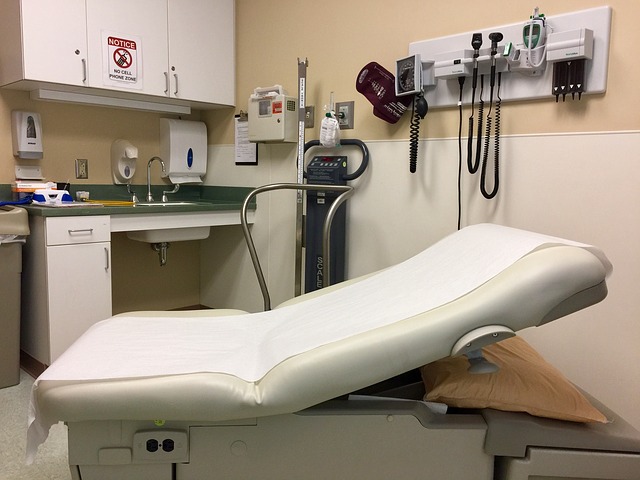I have a great primary care physician. He is personable and kind. He keeps up with the latest guidelines and provides excellent care. He utilizes an electronic medical record that allows me to access my lab results via a patient portal. He considers patients to be partners in the decision-making process. His office staff is polite and efficient. Do you know the saying, “You have to kiss a lot of frogs before you find your prince?” Well, I’m not saying my former primary care physicians were “frogs”. In fact, they are very good doctors. But it took me a while to find someone who has everything I was looking for. My hope is that this article will spare you a few warts.
Your primary care physician (PCP) is typically the first point of contact for all of your medical care. The role of the primary care physician is to help you maintain good health through preventive care, to manage acute illnesses, and to screen for potentially dangerous conditions. They refer you to specialists when your condition requires additional expertise. Primary care doctors have typically specialized in Internal Medicine, Family Medicine, or Pediatrics. The relationship between you and your primary care physician is valuable and may span decades. It is important that you choose someone who is knowledgeable and can meet your health care needs. It is equally important that your PCP is someone with whom you can connect on a personal level. The two of you don’t need to be “besties”, but you need to have mutual respect and you need to feel comfortable discussing your concerns. People who are uncomfortable with their PCP (or who don’t have one) tend to receive sporadic care from emergency rooms, urgent care centers, and retail clinics. While these sites are appropriate in certain situations, routine care should be provided by a provider or practice who has access to your medical records and can provide comprehensive care.
If you’re happy with your current PCP, congratulations on making a great selection. If you are looking for a primary care physician, here are 5 things to help you get started.
- Ask for referrals
We seek referrals for hair stylists, restaurants, hotels, and other personal services, but when it’s time to select a doctor we choose a random name from a list. Ask your friends, family members and co-workers if they have a PCP they like. We all have different personalities and preferences but if they genuinely like their PCP, there is a high probability that you will too. If you have friends in the medical field ask for their recommendations, as they may have an inside perspective based on professional interactions.
- Determine who’s “in network”
Depending on your health insurance, it may be necessary for you to choose a PCP that is within your insurance company’s network. If you ignore this requirement you may incur significant out-of-pocket expenses. This is particularly true for health maintenance organizations (HMOs). You can find a list of in-network providers on the insurance company’s website, in the written materials you received at the time of enrollment, or by calling the number on the back of your insurance card.
- Identify your preferences
Do you prefer that your physician is a certain gender, age, or member of a particular ethnic group? Perhaps you prefer a doctor who speaks your native language. If these things are important to you, they can help you narrow the options. This information is often available on health insurance websites or you can inquire directly with the physician’s office.
- Evaluate Accessibility
The doctor’s office should be in a location that’s convenient for you. Ideally, it should be close to your home or your job. Inquire about the office hours for the practice. Most physicians’ offices are open Monday-Friday. Others are closed on certain weekdays or afternoons. Some offer weekend hours. There can be significant variability regarding the ease of making appointments. Do they take same day appointments for sick visits? Is there a long wait for routine visits/check-ups? Can you access the doctor via phone or email for minor issues?
- Do your research
Word of mouth is important, but this is going to be your doctor so make sure you do your own research. Visit the practice’s website for biographical information about the physician. It can be helpful to know where a physician went to school but don’t finalize your selection based solely on educational background. There are great doctors who attended average medical schools and not-so-great doctors who attended prestigious medical schools. If dates for medical school graduation or completion of residency training are provided, you can use this information to estimate the physician’s age and years in practice. If the doctor practices in a group setting, review the bios for other physicians in the office, as you will likely have encounters with them when your PCP is on vacation or otherwise unavailable. Go to certificationmatters.org to find out if the physician is board-certified. Check for red flags, such as medical board suspensions or sanctions, by visiting the website for your state’s medical board. Healthgrades.com and RateMDs.com post patient reviews. These can be helpful, but at times they represent the views of one disgruntled patient rather than the physician’s overall performance. If possible, round out your research by going directly to the source. Request an interview with the physician. This will likely occur via phone. When you call the office, take note of how quickly the receptionist answers the phone, whether her tone is friendly, and how long you are left on hold. The physician will probably have limited time, so focus on the things that are most important to you. Inquiring about how the doctor approaches diagnostic uncertainty or how they collaborate with patients when making treatment recommendations can reveal a lot about the doctor’s personality and practice philosophy. Ask open-ended questions, listen carefully, and trust your instincts.
Good luck on your journey and be empowered with the knowledge that you can be in the driver’s seat when choosing your healthcare team.
Have you joined the Your GPS Doc Family? If not, please click here to receive notifications about new content as well as useful worksheets and additional resources only available to Your GPS Doc subscribers.








Again your information deemed helpful..with the new year here and the changing of my insurance company,looking for a doctor that accept my insurance and has the best interests of my family not just a payday .
Derwin, thanks for your comment. I’m glad this information is helpful. Consider subscribing to the website for additional tips and information.
Excellent article! After going through a bunch of frogs, warts and all, I finally found a PCP I absolutely love. His office was 10 minutes away. He literally saved my husband’s life by detecting signs other doctors dismissed and sent him directly to the emergency room although my husband said he felt OK at the time. A complicated, same day emergency surgery and 10 days in the hospital later, we realized how lucky we were to have this doctor. Unfortunately, our doctor opened a new office almost an hour away. While my husband’s willing to make the drive, I’m torn. I hear hospitals are taking over emergency care anyway and updating PCPs after the fact, so is it really necessary that the PCP is in close proximity?
Thank you for your comment, Celeste. Many people choose to travel longer distances to visit their primary care physician, especially when a physician you like moves further away. There is nothing wrong with this, but some stop going as often as they should because of the inconvenience. If you and your husband are relatively healthy and see the doctor infrequently, the proximity to your home or job is less important. For individuals with chronic health conditions who must be seen regularly, it is generally better to find a physician close by. However, quality always trumps distance!
[…] physician (PCP) of your choice. If you are not satisfied with your PCP, find a new one! Here and here are excellent posts that suggest ways to choose a provider that you […]
I think, like you mentioned, one of the most important factors in your decision should be accessibility. Driving to another town when you’re well is one thing, but when you’re sick and really need a doctor, you’ll be glad you chose your local practice. Local doctors will also know your community, and will be better equipped to treat local health issues.
You’ve got some great tips for choosing a doctor. We just moved towns, so we need a new doctor to see as soon as possible. I’ll be sure to ask some of our new neighbors and friends for recommendations, like you said. They have families too, so they should give good advice.